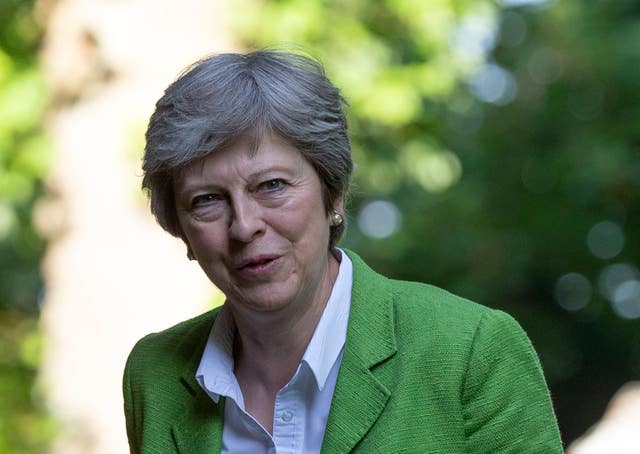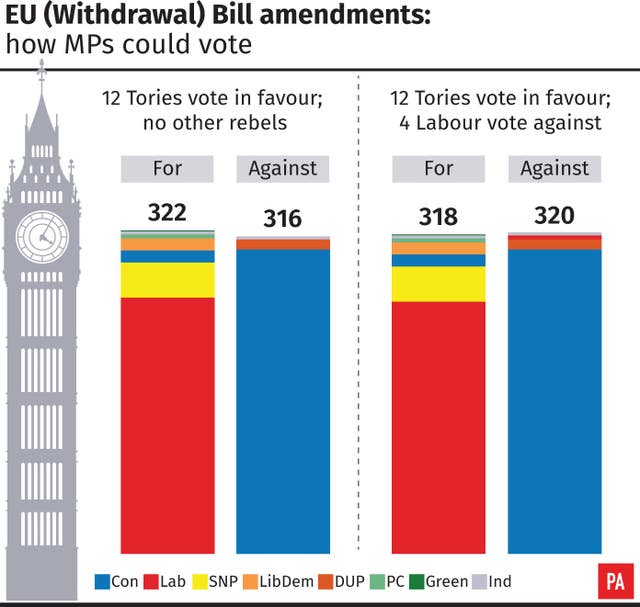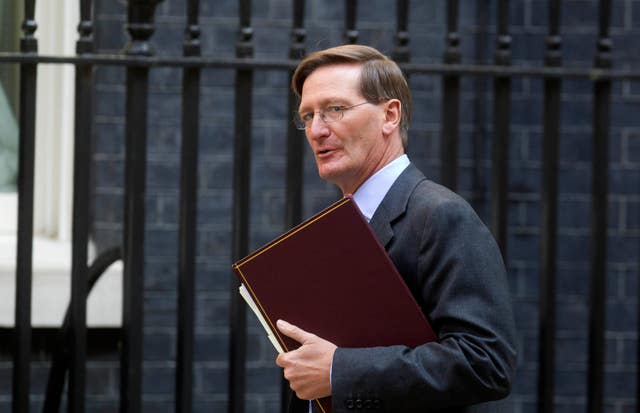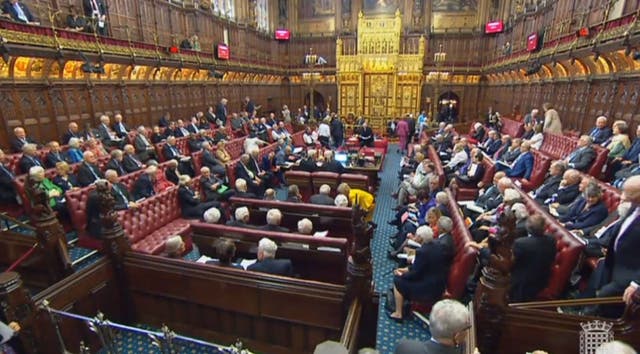Key questions in big week for Brexit in the House of Commons
Theresa May is facing one of the toughest weeks of her premiership.

Theresa May is facing one of the toughest weeks of her premiership as the EU (Withdrawal) Bill returns to the House of Commons.
Here are some of the questions being asked about this week’s votes:
– What is the purpose of this Bill?
The EU (Withdrawal) Bill revokes the 1972 Act which took the UK into the European Economic Area, but also transposes all relevant EU law into British statute so there are no holes in the law book at the point of Brexit.

– What happened to the Bill in the House of Lords?
Peers defeated the Government on 15 issues, introducing amendments on issues ranging from future UK membership of the customs union and European Economic Area (EEA) to ministers’ use of “Henry VIII” powers to force through changes without parliamentary scrutiny and the questions of whether MPs should get a “meaningful vote” on the final Brexit deal.
– What was the Government’s response?
The Government has accepted one of the Lords amendments, allowing the UK to continue to co-operate with EU agencies, which it says is already its policy.
It opposes the other 14 and will be seeking to overturn them, though in some cases it is offering a compromise solution.
– What are the crunch votes and when will they happen?
Issues most likely to provoke rebellions include the”meaningful vote” and the question of whether the date of Brexit should be written into law – both due for votes on Tuesday afternoon – as well as whether the UK should stay in the customs union or EEA, which should come early on Wednesday evening.

– Is the Government guaranteed to get what it wants?
Far from it. Even with the support of 10 Democratic Unionist Party MPs, Mrs May has a working majority of just 13 in the Commons, which means she can be defeated by a rebellion of as few as seven Tory backbenchers.
Some 13 Tories have signed a “soft Brexit” amendment to the separate Trade Bill, and it is thought that a few others may be considering breaking ranks.
On the other side, a handful of Labour Leavers are likely to back the Government in breach of their own party whip, making it difficult to predict outcomes.

– What is the “meaningful vote” about?
The Government has promised MPs a vote on the final Brexit deal, but initially said it would be a simple “take it or leave it” choice.
The House of Lords amended the Bill so that if MPs reject the deal, they can direct ministers to go back and renegotiate.
This vote is on a knife-edge, with the Opposition and Tory rebels hopeful of victory.
The Government’s compromise is that a minister would come to the House within 28 days of a deal being rejected to tell MPs what will happen next.
An alternative compromise tabled at the 11th hour by former attorney general Dominic Grieve would require ministers to get Parliament’s approval for their next steps if no political agreement has been reached with the EU by the end of November.
If there is still no deal by February, MPs would decide what happens next.

– How about the customs union?
The Lords passed an amendment stating that Brexit cannot go ahead until a minister has presented a report setting out what the UK has done to try to negotiate continued customs union membership.
Although these terms would not necessarily keep the UK in the customs union, defeat in the Commons would be politically explosive, as it would show Mrs May has no majority for one of her key “red lines”.
A threatened rebellion may have been seen off by a last-minute compromise amendment reached between Remain and Leave supporting MPs calling for “a customs arrangement”.
– And the EEA vote?
The Lords amendment would require ministers to prioritise Norway-style membership of the EEA, which would again breach Mrs May’s red lines and be seen by Leave backers as “Brexit in name only”.
There is little chance of Government defeat on this issue, as Jeremy Corbyn has ordered his MPs to abstain and back an alternative Labour amendment requiring access to a European “internal market”.
– What happens next?
The Bill will return to the Lords on June 18, kicking off a process of “Parliamentary ping-pong” which sees it bounce from House to House until agreement is reached.
The Government’s ultimate weapon of invoking the Parliament Act to ensure the Commons gets its way is less potent than usual because of the tight deadline for completing legislation ahead of Brexit Day on March 29 next year.
– Is Theresa May’s position in danger?
Few at Westminster expect a challenge to the Prime Minister’s position this week.
Some Europhile Tories may hold back from rebelling to avoid destabilising her and risking handing the leadership to a hardline Brexiteer.
Conversely, committed Eurosceptics seem to be keeping their powder dry, unsure that the PM would be replaced by one of their champions even if they were able to unseat her.
– Is it all over once this Bill has passed?
No. There will be plenty more chances for upsets as separate Bills on customs and trade come before MPs next month, followed by legislation on future immigration rules later in the year and a Withdrawal Agreement and Implementation Bill once the final Brexit deal is struck.





